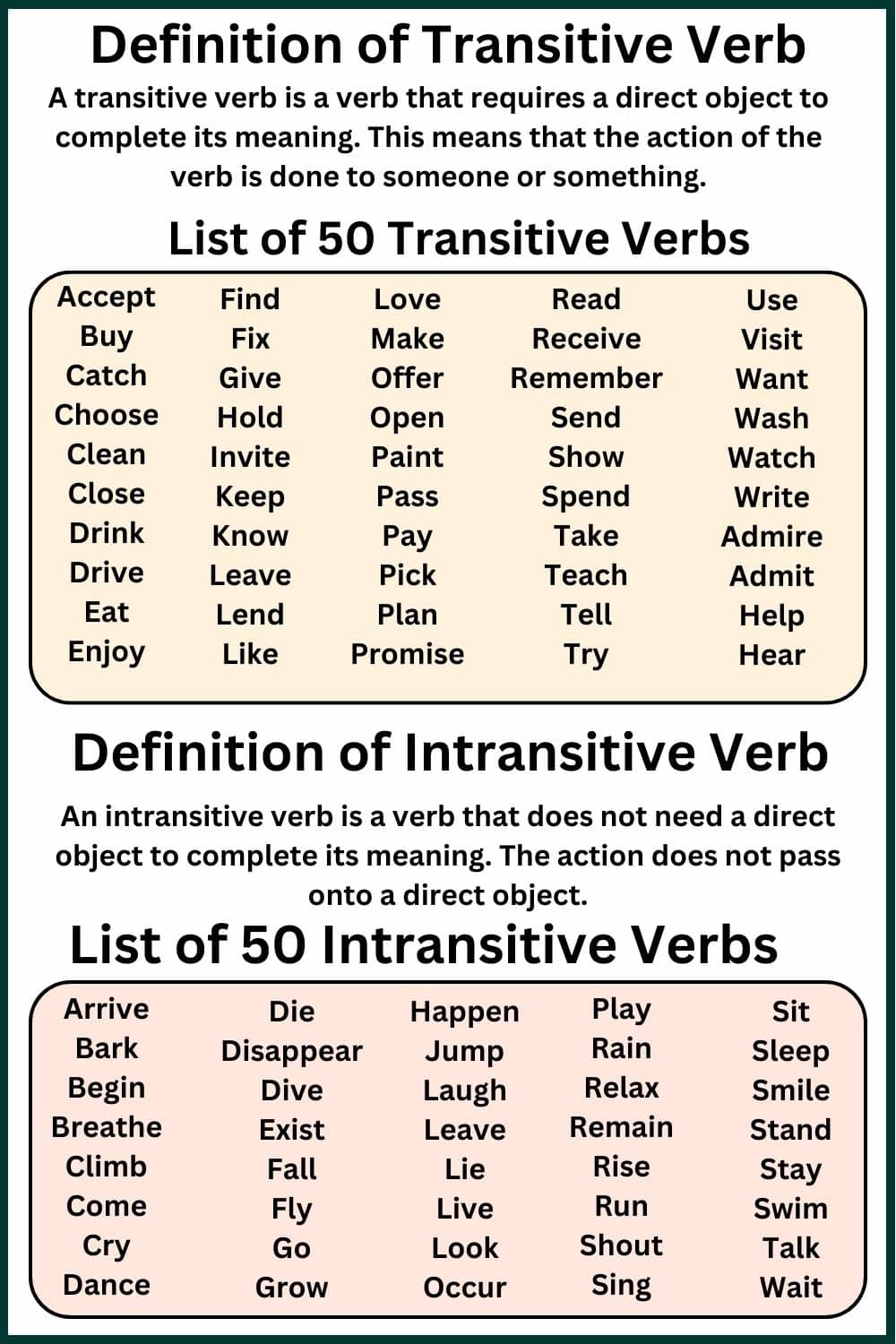Verbs play a crucial role in the English language, as they help to convey actions or states of being. There are two main types of verbs: transitive and intransitive. Understanding the difference between these two types of verbs is essential for mastering the language.
Transitive verbs require a direct object to complete their meaning, while intransitive verbs do not. This distinction is important in determining the structure of a sentence and understanding how the verb functions within it.
Transitive Verb vs Intransitive Verb
Transitive verbs are verbs that require a direct object to complete their meaning. For example, in the sentence “She ate the apple,” the verb “ate” is transitive because it requires the direct object “the apple” to make sense. Without the direct object, the verb would be incomplete. Transitive verbs often answer the question “What?” or “Whom?” after the action.
In contrast, intransitive verbs do not require a direct object to complete their meaning. They can stand alone in a sentence and still make sense. For example, in the sentence “He sleeps,” the verb “sleeps” is intransitive because it does not require a direct object to convey its meaning. Intransitive verbs often answer the question “Where?” or “When?” after the action.
It is important to note that some verbs can be both transitive and intransitive, depending on how they are used in a sentence. For example, the verb “run” can be transitive when used with a direct object (“She runs the marathon”) or intransitive when used without a direct object (“He runs every morning”).
Understanding the difference between transitive and intransitive verbs can help improve your writing and communication skills. By correctly identifying whether a verb is transitive or intransitive, you can ensure that your sentences are grammatically correct and convey your intended meaning clearly.
In conclusion, transitive verbs require a direct object to complete their meaning, while intransitive verbs do not. By recognizing the distinction between these two types of verbs and how they function in a sentence, you can enhance your language skills and effectively communicate your thoughts and ideas.
